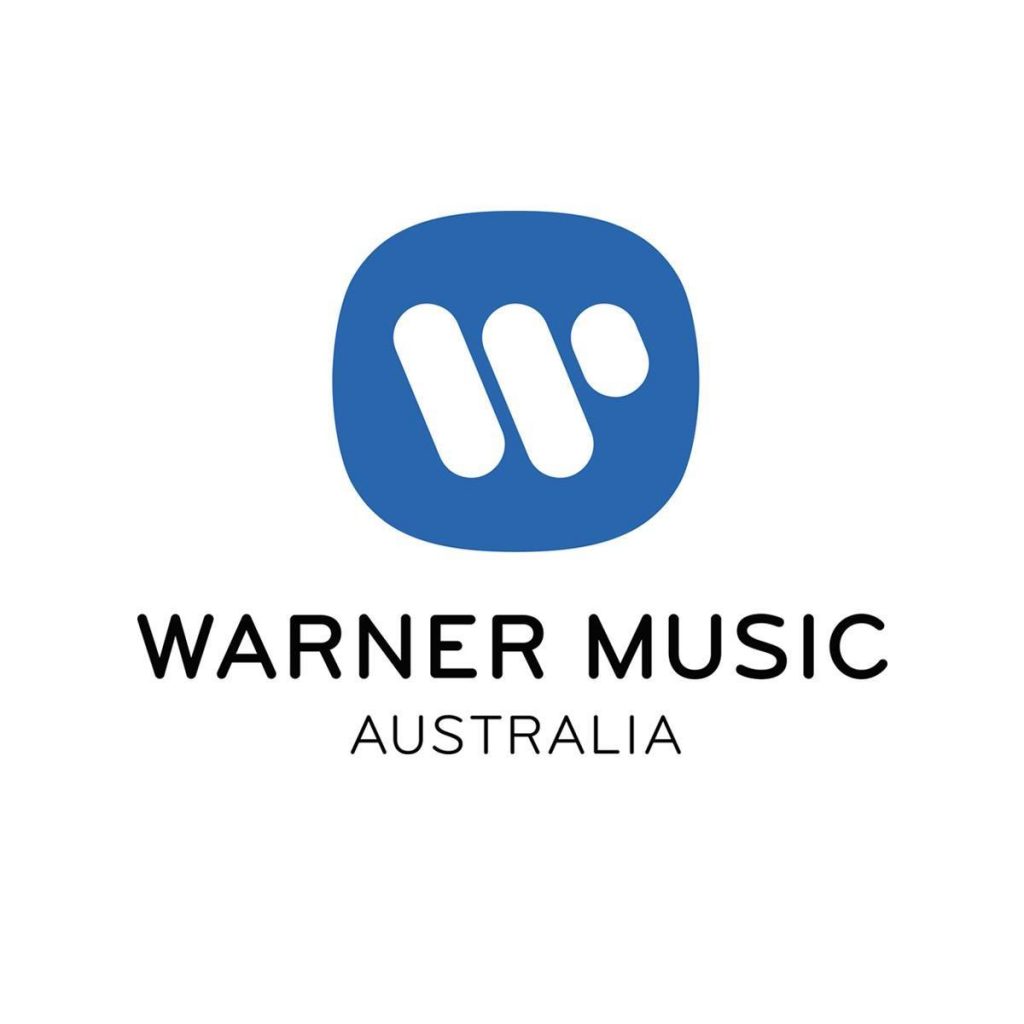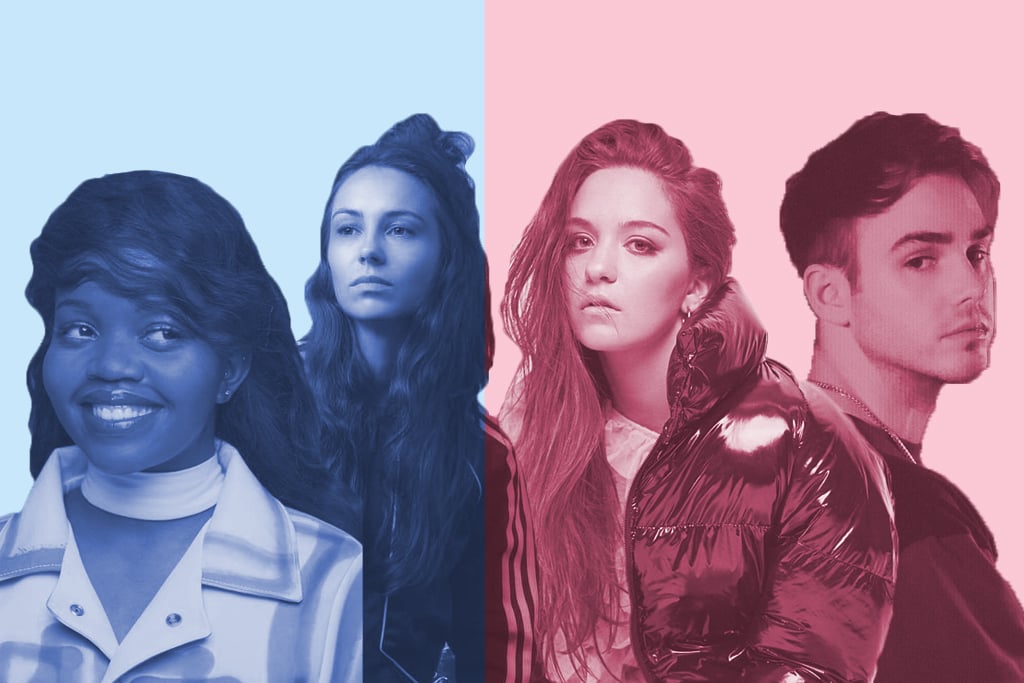Glades Are Breaking All The Rules And Australian Music Is Better For It


Glades' debut album, 'To Love You', is out now.
If you had to pick a genre that defined Australian music in 2018, you’d be hard-pressed to go past pop.
In the last 10 months, we’ve witnessed an explosion of sophisticated, forward-thinking pop music, pushed by both major artists (Amy Shark, Tkay Maidza), and bright up-and-comers like Kota Banks and Jess Kent.
The pop blast radius has been so wide that even alternative radio is embracing it — a decade ago, it would have been out of the question for triple j to play a song by an artist like Beyoncé or Drake or Charli XCX. Now, they’re all spun regularly.
At the forefront of this new pop wave is Sydney trio Glades, whose runaway singles ‘Not About You’ and ‘Eyes Wide Shut’ are some of the most-played songs on triple j this year. Or you might know them from their tracks ‘Drive’ and ‘Do Right’, which have racked up over 36 million and 60 million streams respectively.
Maybe you caught them at Listen Out, where they were roundly regarded as one of the best acts on the ground.
In short: Glades are a big fucking deal.
Over the past three years, the trio — made up of singer Karina Wykes and multi-instrumentalist producers Cameron Robertson and Joseph Wenceslao — have been steadily pulling together their debut full-length effort, titled To Love You.
Ahead of the album’s release, Music Junkee spoke to Karina and Cameron about the long road to To Love You, the ever-changing face of pop music, and how love should be explored in all its forms. You know, the small stuff.
We’re in an interesting time for pop music, in that a lot of artists are moving away from the traditional album-release format, opting instead for singles and EPs and mixtapes. Was an album always on the cards for you? Was it really important to you to put out an album?
Cameron: I think so, especially at the start. We were always talking about doing an album. Actually, this project was first going to be like a second EP but, at the time, we were on the road and touring with a lot of bands that had all released their albums. Just seeing the way their fans were singing every single word back to them…even for us, just watching, it was a really special feeling.
A big part [of] why we actually chose to do an album was the touring side of it and being able to present a body of work that really represents us.
Karina: And I feel like an album, in a sense, solidifies you as an artist because it’s a full body of work. It just felt right.
One of the advantages of an album is you’re able to present a theme. And there’s a pretty big theme on To Love You, about exploring different kinds of love. Can you talk me through how that came about and why you wanted to explore it?
Karina: In music right now, you share a lot about just one side of love, just the romantic side of love. There’s so much more to love than just the two-dimensional side that we hear about all the time.
There’s love of the people around you and your community. There’s love of your friends and even loving yourself and knowing your worth and caring for yourself. And I think, to us, that was really important to explore that, and that’s what we did in this album. There’s multiple kinds of love and it’s important, because they’re all just as important as the romantic side.
Did you go into the song-writing process wanting to explore that, or was it more that you wrote a bunch of songs, and then at the end you were like, ‘Oh, they all kind of link together.’
Karina: I think it did happen in a natural way. We have quite a positive tilt to our song writing and we did hear some of our songs and they lent themselves to that theme.
But also we had the title to the album prepared and we were writing songs towards that…for maybe three years now, so it was intentional. And I think that the positive way of writing lent itself to that. But, also, in a few songs, we experienced some things personally, which in turn impacted how the lyrics were written. Some stuff that happened in our real life, and that was also an intentional thing to write about.
Why did it take three years to arrive at something you were happy to put into the world?
Karina: We just had one song on the album that we kept coming back to, because it felt so special and it had that feeling to it and we knew we wanted it to be on the album.
It went through a lot of remakes — rewriting the lyrics, reproducing it, that kind of thing. It just felt really special, and so it’s kind of two, three years in the making.
Can you talk me through the recording process?
Cameron: We started in L.A., I think. It was actually our first writing trip because, previous to that, we released our first EP and after that we were struggling to figure out what we wanted to say and figure out our sound.
There’s so much more to love than just the two-dimensional side that we hear about all the time.
We were going through some writers block and our team was like, “Well, how about you try a writing trip? And how ’bout you try collaborating with some other songwriters and other people just to help you guys enhance what you’re already doing?”
At the start of 2017, we did our first writing trip to L.A. and to New York and, out of that trip, we ended up writing our song, ‘Do Right’, which honestly sparked a lot of what we wanted to say for the rest of the album.
We’ve essentially been writing for two and a half, three years. But it kind of all came down to the wire, because a couple of months ago, we were in L.A., finishing songs.
‘Sweetheart’ is probably my favourite song on the album. It may be the biggest moment of the record. How did that track come together?
Karina: Lyrically, the whole vibe of the production that we started off with kind of sparked the attitude and the sass in the lyrics. It felt strong, I always feel strong when I sing that song. And it’s about someone who isn’t treating you right and then you realise that you don’t have the right to call me a sweetheart anymore. You don’t have ownership over me, that kind of thing.
It has a lot of sass and a lot of strength to it, and attitude.
We’re in a bold new era of Australian pop music right now. A few years ago it would have been unheard of for a band with your sound to be played on alternative radio, let alone being one of the most-played artists on alternative radio. What do you think about Australia’s growing demand and supply of great pop music, and do you think that the broader Australian public are finally coming around to pop music?
Cameron: I think so, yeah. I remember when we first started in 2015, alternative radio was very electronic or rock, or indie rock — but as more Australian artists actually started to do the electronic pop thing, it feels like Australians have backed that and have gradually warmed up to Australian pop.
Karina: I think it’s cool, you gotta break some boundaries to do something new, you know? I feel like that’s what we’re in the process of now. People are breaking the rules, and then other people recognising that and getting on board.
Your sound is a zeitgeisty blend of dance and pop, which is a sound that has exploded over the last few years thanks to this sort of cross-pollination that comes with streaming. Did you guys grow up being obsessed with one particular genre or is Glades a representation of how you’ve always listened to music?
Cameron: It’s really interesting. I honestly didn’t start listening to music, just in general, until I was about 18 and started making music. And I remember around 2013, when I started producing music and just starting to write, Lorde’s ‘Royals’ came out, and also stuff from Broods was coming out.
At the same time the media world started to transition into pop music, so I guess from my roots and where I started, pop production has always been a blend between layers of sounds and production hooks, but with this minimal kind of groove element to it.
Karina: I feel like I kind of just listened to whatever was put in front of me…There’s tiny things that we can take from whatever we listen to, whatever genre that is, and then add a little flavouring to our own music.
Sometimes electronic music can be a bit difficult to translate to the stage. How have you guys approached creating your live show?
Cameron: It’s definitely developed a lot since the start. When we first started playing live, it was a lot more electronic-based. We’ve always used a live drummer, but we used a lot more samples and sample patches. But we kind of found that was actually quite limiting in how we wanted the live element of our band to feel. We always wanted it to feel like we were a band and everything.
We’re still figuring out what works for us and how that will translate.
Karina: And I think our sound has changed a bit — and to have those live elements actually in the recording translated really well when we played it live, so there’s a lot more electric guitars in the newer songs, for example. Cam likes to build the track with a lot of live elements now, so it is electronic but it’s also a bit of a crossover of live elements as well.
—
Glades’ debut album, To Love You, is out now. Buy or stream it here. They’ll be heading out on tour in support of the album later this year — for all dates and details, head here.
—
Jules LeFevre is Junkee’s Music Editor. She is on Twitter.
